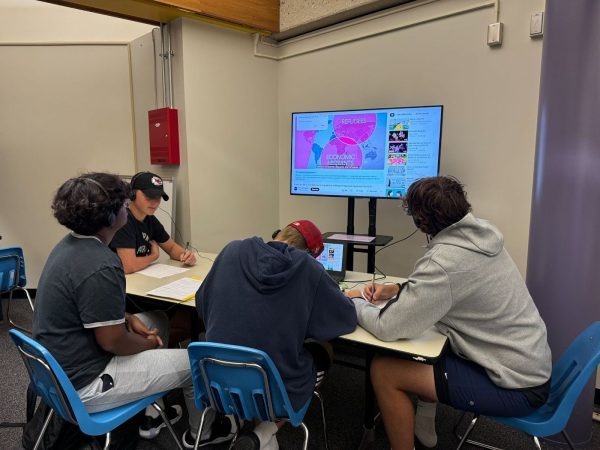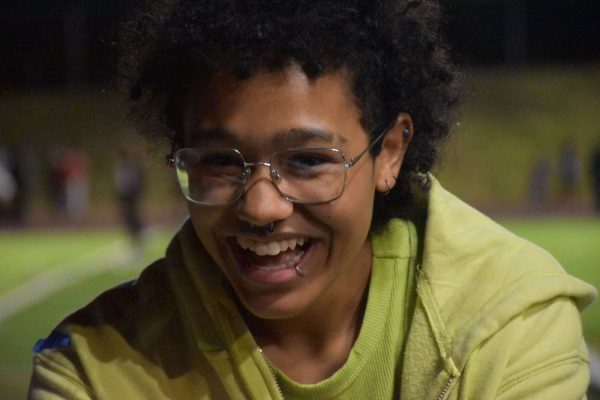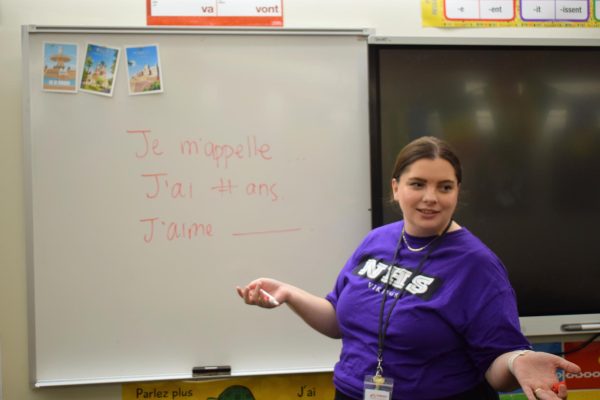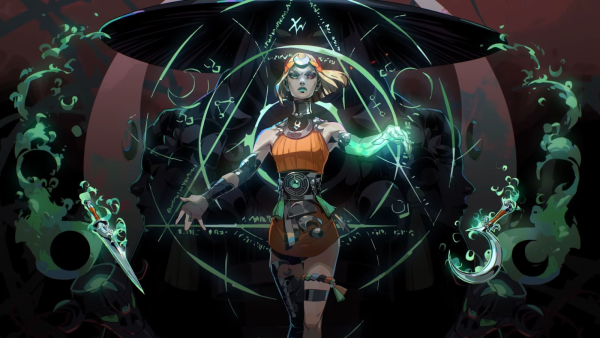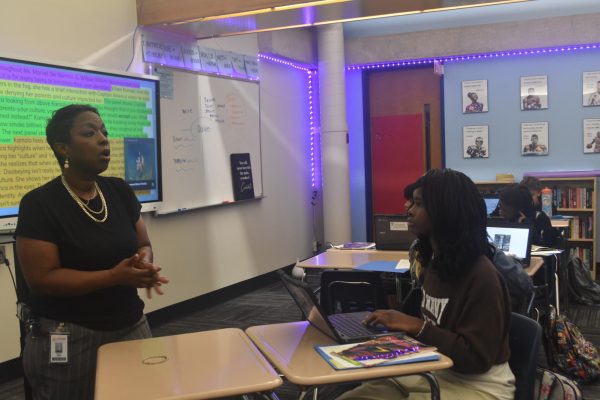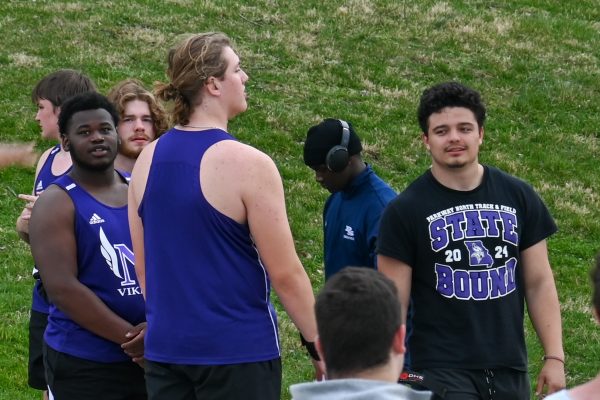Principal Tori Cain Talks About Her Military Experience, Advice
There are many special individuals in the Parkway community who have served our nation. This Veterans Day, we wanted to introduce you to one of these individuals.
What was your rank and job in the military?
When I was in the military, first of all, I was in the Army Reserve for 8 years. I signed up at the age of 17. It was called a delayed option, so I signed up at the end of my junior year and went to basic training, went back and finished my senior year, and went to what they call your job training. I was what you’d call a 76th Charlie, which is an equipment and parts specialist. I worked in the motor pool, which meant that I made sure that I was ordering parts and things for military vehicles. I was able to drive those vehicles, and I would take out different soldiers to make sure they could drive those vehicles. Then, I finished out as a Sergeant in the Army Reserve.
Where were you stationed during your service?
I grew up in the state of Arkansas, and I was actually in Pineworth, Arkansas, and it was called the 92nd Chemical Battalion.
How was your experience in the military?
Well, it was somewhat different. My father was a military officer, and so for me, it was quite different because what I did when I was in the motor pool, there were quite a few males and very few females. I had to get used to that. I wasn’t used to working around a vehicle that way, you know. I knew how to fill gas and check the oil, and put some fluid in there, I learned a lot about that. There was a lot of training as well. I did well in the school side of it, and we were also a chemical battalion, so I’m a science major. We also had to test a lot of chemicals and make sure we were ready for what they call chemical warfare. I was also a member of the Army, so my first job was as a soldier. I had to know how to fight and how to maintain my uniform and equipment. They teach you discipline and they teach you to take care of yourself, as well as protocols. That part was different, especially walking in as a 17-year-old. I also had to learn how to camp outside, pitch large and smaller tents. I learned a lot of skills about life and how to work in an organization, receive orders and strategic planning and how to respond quickly or long term.
How has your military experience affected your life today?
I think it taught me to be very flexible and taught me a lot about how you move about as a large organization, not just as a single person, and how your single plan affects a larger system, and that they’re counting on you to make sure you do your part so that the organization or mission can move forward, and evaluate if you were successful in that mission. That lies very much with what I do today: how your organization will be impacted [translates to] how will North High be impacted if things aren’t completed, or if people aren’t prepared, or if the community’s needs aren’t met. The discipline to endure no matter the environment also to survive and make it is something I take throughout life.
Why did you choose to join the military?
One of my friends who was a cousin of mine and I enlisted together in a buddy system.
What are some common misconceptions about the military?
The lack of opportunity, or it’s for one type of person, maybe someone who’s not going to college. You see a lot of training in the military, and there are lots of advances in technology due to what our world faces, in order to protect and serve our country. So I think the misconception is of the different types of career opportunities in the military. I think people thought that “If I don’t go to college, that’s a backup plan”. And you’ll find that the military has a medical school because they have to take care of their people. They have attorneys. They have all kinds of career fields in the military. Sometimes individuals think it’s limiting, but they don’t realize the amount of training that goes into it. Some people think “Ok you’re going for the [opportunity to] travel,” but it depends on what you’re looking for and what your purpose will be. The misconception is that it is substandard, but I do believe over time it has shifted. People think about the draft part of it, where males at 18 have to sign up, and yeah that happens in wartime and in our history…Sometimes it gets a bad rep because of the loss of life. Today, it’s just another career field.
Why do you think Veteran’s Day is so important?
It honors the sacrifice that individuals have made to make sure that we enjoy the daily freedoms that we enjoy. Some people don’t even realize that because we take it for granted because that’s our everyday life. I think that we’re honoring their everyday sacrifice and the loss of life that individuals have given so that we can live and experience the freedoms that we have. So I think that it is very important to provide a time to shine a light on those individuals that are doing so each and every day.
Do you have any advice for students who are interested in enlisting?
I think if you’re interested in doing so, first of all, think about what are your career goals and see which branch would better serve that, and maybe talk to someone from each branch. Make sure that you have the information that you need about what you want, where you see yourself, and will that help you advance into where you want to go. Look at the pros and cons of that and see if that matches up with your personality and career goals. There’s a physical component and there’s a mental component. You need to ask yourself “Can I do this?” and “ Is this something I really want to do?”


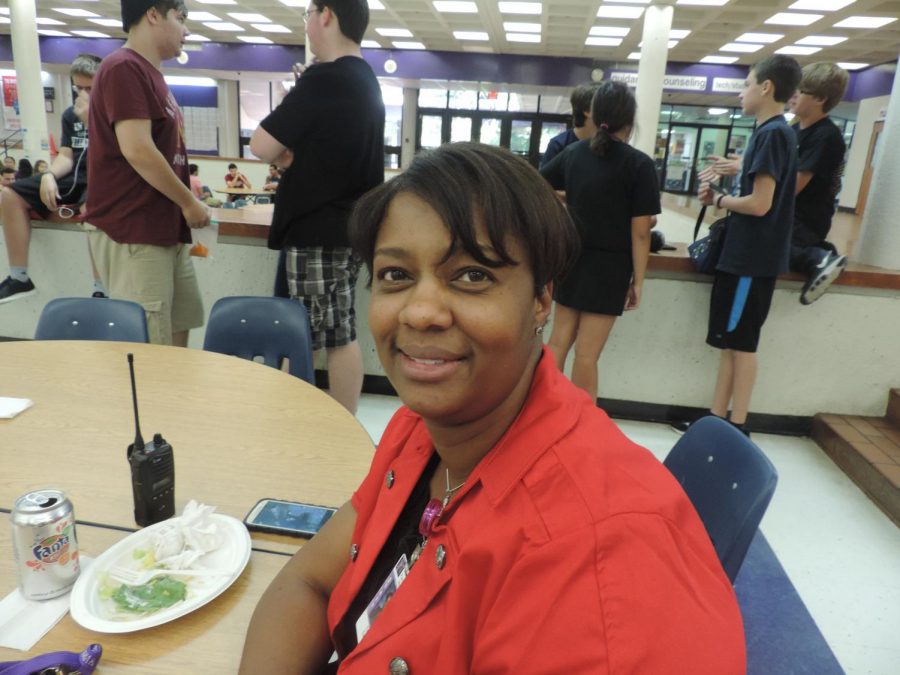
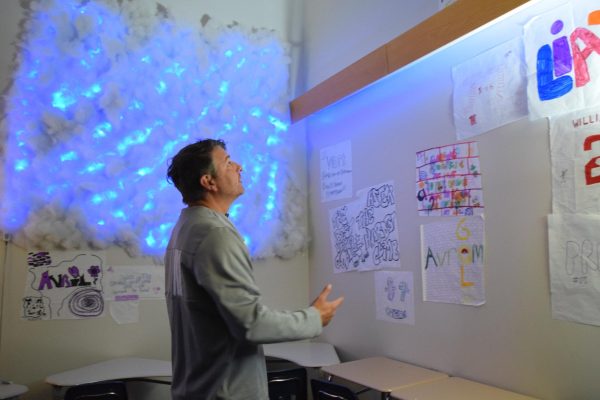

![There are many AI sites and apps available. “You don't [stop students from using AI] - you teach them how to use it,” social studies teacher Melody Barger said.](https://pnhnorsestar.com/wp-content/uploads/2025/01/AI-600x400.jpg)
